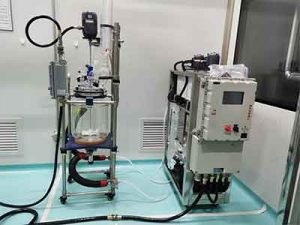cooling temperature
Understanding Cooling Temperature
Cooling temperature is a vital aspect of many processes, where managing heat is essential for maintaining efficiency, ensuring safety, and preserving the quality of products. Whether it’s in the operation of electronic devices, the production of food and beverages, or in chemical processes, controlling the cooling temperature is crucial.

Principles of Cooling
Cooling is the process of reducing the temperature of an object or substance by removing heat. This can be achieved through various methods, including:
Natural Convection: The movement of a fluid (liquid or gas) due to differences in density within the fluid.
Forced Convection: The use of fans or pumps to move a fluid over a surface to enhance cooling.
Radiation: The emission of heat from a body due to its temperature, which can occur without a medium.
Evaporation: The process by which a liquid turns into vapor, absorbing heat in the process and thus cooling the surrounding area.
Mechanisms of Heat Transfer
The three primary mechanisms of heat transfer are conduction, convection, and radiation:
Conduction: Heat is transferred through a solid material from a region of higher temperature to one of lower temperature.

Convection: Heat is transferred within fluids (liquids and gases) as the fluid’s motion carries the heat from one place to another.
Radiation: Heat is transferred through electromagnetic waves and can occur in a vacuum without the need for a medium.
Role of Cooling Temperature in Industries
The role of cooling temperature is significant across various industries:
Electronics: In electronic devices, cooling prevents overheating, which can damage components and reduce performance. Maintaining an appropriate cooling temperature is crucial for the longevity and reliability of electronic systems.
Food Processing: Cooling is essential for preserving food, preventing the growth of bacteria, and maintaining the quality and taste. It is used in refrigeration, freezing, and chilling processes.
Chemical Processing: Many chemical reactions are temperature-sensitive and require precise cooling to control reaction rates and ensure product quality.
Automotive: Engine cooling systems maintain an optimal temperature range for engines, preventing damage and ensuring efficient operation.
Importance of Controlling Cooling Temperature
Controlling the cooling temperature is essential for several reasons:
Efficiency: Proper cooling temperature can improve the efficiency of processes and reduce energy consumption.
Safety: In many industries, high temperatures can lead to safety hazards, such as fires or explosions. Effective cooling systems are necessary to mitigate these risks.

Product Quality: In food processing and chemical industries, precise temperature control is necessary to maintain product quality and prevent spoilage.
Advancements in Cooling Technology
Advancements in cooling technology have enabled more precise management of cooling temperatures:
Variable Speed Drives (VSDs): These allow for the adjustment of fan speeds in cooling systems, improving efficiency and allowing for more precise temperature control.
Smart Sensors and Controls: Advanced sensors and control systems can monitor and adjust cooling temperatures in real-time, improving process control and energy efficiency.
Thermal Interface Materials (TIMs): These materials improve heat transfer between electronic components and their cooling systems, enhancing the efficiency of heat dissipation.
Conclusion
Cooling temperature is a critical factor in a wide array of applications, from industrial processes to everyday devices. Understanding the principles of cooling and heat transfer, along with the role of cooling temperature in various industries, is essential for optimizing processes and ensuring safety and quality. With ongoing advancements in cooling technology, the ability to manage cooling temperatures with precision is becoming more accessible, leading to improved efficiency and performance across the board.
Related recommendations
water cooling system
623Water Cooling Systems: An In-Depth Analysis Definition of Water Cooling SystemsWater cooling systems, also known as liquid cooling systems, are methods used to lower the temperature of various ...
View detailsprocess cooling water system
389What are Process Cooling Water Systems? Process cooling water systems are specialized systems designed to remove heat from industrial processes and equipment. They are essential in maintaining ...
View detailsstorage chiller
807Introduction to Storage Chillers Storage chillers are essential in preserving the quality and safety of temperature-sensitive products in industries such as food processing, pharmaceuticals, an...
View detailsHow to Take Antifreeze Protection Measures for Industrial Chillers in Winter?
1664How to Take Antifreeze Protection Measures for Industrial Chillers in Winter? The temperature is low in winter. We know that many machinery and instruments need antifreeze protection measures...
View details
 LNEYA Chiller
LNEYA Chiller






HelloPlease log in